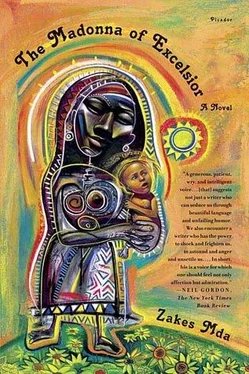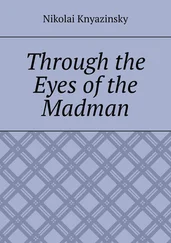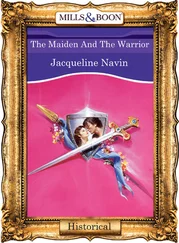“So now he can’t even express an opinion in his own house?” asked Cornelia.
“Politics only makes him unhappy,” explained Jacomina.
“Perhaps in the next local elections in November he shouldn’t stand,” advised the dominee.
“I certainly won’t stand,” said Tjaart resolutely. “Let the black people take this town and ruin it. I’ll focus on my butchery, and on planning for the return of the Afrikaner to his rightful place.”
“We do not need to be sombre,” said the dominee, getting up from his garden chair and going to the table, which was laden with drinks and fruit. “It is Christmas! Let us have some more of your wonderful brandy, my boy.”
The Christmas rickshaw left them to their Christmas cheer and returned to Niki and Popi.
They were sitting silently, listening to the bees. Niki unwrapped the turban from Popi’s head and exposed the locks that flowed to her waist. She caressed her daughter’s hair.
“While you are at it, why don’t you scratch my scalp,” said Popi. “It is always itching.”
“It is because of dandruff. It is all over your head like flakes of snow. You don’t wash your hair often enough.”
“This hair is a curse,” said Popi. “I never know what to do with it.”
After thirty years, she had still not learnt how to deal with her hair. Even as a young girl she had always regretted the fact that she could not do the things that other girls her age did with their hair. She could not use the trendy hair straighteners like Dark-and-Lovely and Sta-sof-fro — all the way from America — because her hair was already straight. She had watched with envy as other girls relaxed their hair by frying it with chemicals or with red-hot copper combs. She herself was deprived participation in that ritual as her hair did not need relaxing. She could not be part of the camaraderie of braiding either. Once she had tried braiding her hair, but had had to undo it immediately when she saw her split ends sticking out all over the braids like a badly made raffia rope. She could not use extensions because her hair was already naturally extended. She had watched with envy as grease dripped down her friends’ ears after a perm. She had drooled at their cornrows. At their dreadlocks. And most recently at their closely cropped kinks that had been dyed blonde. Her hair remained flowing locks. She alone, among her friends, could flip her head like a white woman. This became necessary whenever activity or the wind blew some of her locks across the front of her face. The turban, therefore, continued to be her saviour.
“Your hair cannot be a curse, Popi,” said Niki quietly. “God cannot create a curse on your head.”
“The pain of my whole life is locked in my hair,” said Popi bitterly.
“Hair is just hair, Popi. Hair or no hair, you are a beautiful person, Popi. A very beautiful person.”
VILIKI WAS grateful. So was Niki. From the outrage of rape (that’s what we called it in our post-apartheid euphoria), our mothers gave birth to beautiful human beings. As beautiful as the Seller of Songs, who could create beautiful things. As beautiful as Popi, who could not create, but who knew how to love beautiful creations like the trinity’s Christmas cart that took her and her mother back to Mahlatswetsa Location that evening, after spending a comely Christmas Day with the bees.
31. SOMETIMES THERE IS A VOID
SHE IS NOT a madonna. Although she sits like one. There is no baby in sight. Her golden-brown body is illuminated by red streaks of light. She is naked, except for the veil of lace that flows from her head to the blue floor on which she sits. Black outlines reinforce her fullness. She looks away from the window on which the shadow of a voyeur is cast. Between her open legs is a red bowl. In front of her, two white doves are foolishly pecking at the flowers on the lace. Soon they will discover the life-lessness of the flowers and will hop to peck at the blackness of her pubes, where life throbs.
Colour goes haywire. Once more a beautiful madness. Life throbs in the green field where two black reapers cut green wheat with their invisible scythes. They put it over their shoulders, where it immediately assumes a yellow ochre colour with tinges of red. One bends to cut the wheat. He wears blue overalls and black gumboots. A wide-brimmed red hat protects him from the absent sun. Another one stands to stretch his tired back. He wears a red Basotho blanket. A black conical Basotho hat protects him from the absent sun. A black donkey pulls a red cart in the field, trampling the crops: A black man and a black child sit in the cart. Not black as in black, but black as in Payne’s grey. A black hat protects the black man from the absent sun. The field is not only green. It has broad strokes of titanium white. Strokes of yellow ochre. Strokes of naphthol crimson. Green, white, yellow and crimson strokes extend to the cobalt blue sky.
A wide-eyed girl stands against a deep blue wall. The whites of her eyes are white and the pupils are black. She hides a subtle smile in her blue and green face. She stands between two reliquary figures. One is dressed in white and the other is bare-breasted. Nothing else. No other detail. Just the questions that remain in her eyes.
The same questions were in Popi’s eyes as she moved from one canvas to another. What did it all mean? Did it matter that she did not understand what it all meant? Was it not enough just to enjoy the haunting quality of the work and to rejoice in the emotions that it awakened without quibbling about what it all meant? Why should it mean anything at all? Is it not enough that it evokes? Should it now also mean?
She tried very hard to identify the Flemish expressionist influence that she had read about in the oversized books in the library. The trinity had clearly strayed away from that early influence. All for the better. His work had a robustness that had escaped the Flemish expressionists. Perhaps it was the broad strokes, some of which were created with palette knives instead of the usual broad brushes. And the multiple glazes that seemed to suck her into the canvases, making her walk the same soil that the trinity’s subjects walked.
She had finally come to Tweespruit. To the mission station where the trinity had been based since leaving Thaba Nchu many years ago. She had found the trinity hard at work. Not painting. At eighty-three, he was too old to mess around with pigments. Perhaps his eyes could no longer distinguish the different colours. Or he was too frail to survive the excitement of mixing different colours of oil paints, and of acrylics, to create feasts of new colours. He was hard at work spraying fixative onto a charcoal drawing of a girl reading a book in the candlelight. He was covering his nose with a dirty rag to protect himself from the fumes that assailed the crisp air.
Charcoal drawings. That was all he was capable of creating now. A world in black and white.
The trinity had led her into the living room. The walls were filled with many of his old paintings. They re-created the ambience of his studio in Thaba Nchu. It was as if she had been here before. As soon as she had entered and cast her eyes on the walls, memories of previous visits to Thaba Nchu had flooded her. She had recalled with nostalgia the visits that had made her see everybody’s life through the eyes of the trinity’s works.
At first, the trinity had thought she was one of the women who had come to model for his nudes. She had stood there for a while, feeling very uncomfortable. The trinity had smiled, and looked her over. Then he had told her that he no longer painted nudes. He no longer painted anything. Jokingly, he had added that even if he were still in his painting prime, she would not qualify as a model. She did not have enough flesh on her body. She was tall and slender like the models of the city. Not like the trinity’s buxom models. She had felt naked as he inspected her. It was as though her yellow and blue floral dress, her fawn petticoat and matching knickers, and her red turban had disintegrated. But with the naked feeling, she was no longer uncomfortable. She had been naked here before. Many times. She had fixed her blue eyes on the trinity’s. Both she and the trinity had smiled. And then he had shaped a donkey from the pages of a magazine and had emitted two brays as he gave it to her. She had known at once that he had remembered who she was.
Читать дальше












